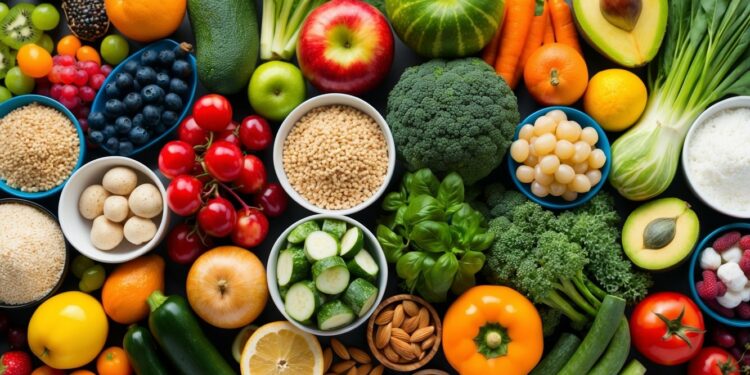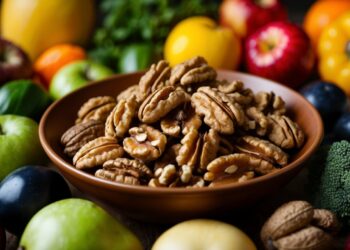As men cross the 50-year mark, gut health becomes even more important. Your digestive system changes with age, affecting how your body absorbs nutrients and fights off illness. Probiotics—those friendly bacteria that live in your gut—play a key role in keeping your digestive system working well as you get older.
Taking care of your gut health after 50 can support your immune system, help maintain a healthy colon, and may even contribute to longevity. Research suggests that the collection of microbes in your gut (your microbiome) affects not just digestion but many aspects of health that become more important with age.
You might notice changes in how your body processes food now compared to your younger years. This is normal, but it means paying extra attention to gut health through diet and possibly specific probiotics formulated for men over 50. Many products now target the unique needs of older men, supporting not just digestive health but also areas like prostate function and immunity.
Understanding Gut Health and Aging
The gut microbiome plays a crucial role in overall health, especially as we age. Research shows that maintaining a healthy gut may contribute to longevity and can help prevent many age-related health issues.
The Role of the Microbiome in Digestive Health
Your gut contains trillions of microorganisms that make up what scientists call the gut microbiome. These tiny helpers aid in digestion, produce essential vitamins, and protect your digestive tract from harmful bacteria.
The microbiome affects more than just digestion. It influences your immune system, brain health, and even your mood. Scientists now call the gut your “second brain” because of this strong connection.
A diverse microbiome is a healthy microbiome. Different bacteria perform different functions, so having many types helps your body work better. Think of your gut as a garden—you want many kinds of plants, not just one.
How Aging Affects Gut Health
As you pass age 50, your gut naturally changes. The diversity of your gut microbiome tends to decrease, which can affect how well you digest food and absorb nutrients.
Your digestive system also slows down with age. You might notice:
- More frequent constipation
- Increased gas and bloating
- Less efficient nutrient absorption
- Greater sensitivity to certain foods
These changes happen partly because your digestive tract produces fewer enzymes and less stomach acid as you age. Your intestinal muscles may also weaken, slowing down the movement of food.
Medications common in older adults can further impact gut health. Many antibiotics, acid reducers, and pain relievers can disrupt your microbiome balance.
Optimizing Diet for a Healthy Gut
Your gut health depends largely on what you eat. The right foods can boost your microbiome diversity and support digestive function, which becomes even more crucial after 50.
Key Nutrients and Foods for Men Over 50
As you age, your digestive system needs extra support. Focus on foods rich in B vitamins, especially B12, which many men over 50 have trouble absorbing. Good sources include fish, lean meats, and fortified cereals.
Antioxidants are your gut’s best friends. They fight inflammation that can damage your digestive tract. Colorful fruits and vegetables like blueberries, spinach, and sweet potatoes are packed with these protective compounds.
Healthy fats from olive oil, avocados, and fatty fish support your gut lining. These fats reduce inflammation and help your body absorb nutrients better.
Calcium and vitamin D become more important as you age. Dairy products like yogurt serve double duty by providing these nutrients while also offering probiotic benefits.
The Impact of Fiber and Whole Grains
Fiber is the superhero of gut health. Men over 50 should aim for 30 grams daily, but most get half that amount.
Soluble fiber, found in oats, barley, and legumes, forms a gel that slows digestion and feeds beneficial gut bacteria. Insoluble fiber from whole wheat, nuts, and vegetables adds bulk to stool and helps prevent constipation.
Whole grains like brown rice, quinoa, and oatmeal provide prebiotic fiber that nourishes your gut bacteria. These foods help your microbiome thrive and improve overall digestive function.
Try replacing white bread with whole grain options. Even small swaps can make a big difference in your fiber intake and gut health over time.
Incorporating Fermented Foods and Probiotics
Fermented foods are natural sources of beneficial bacteria. Add foods like yogurt, kefir, sauerkraut, kimchi, and kombucha to your diet several times a week.
Look for yogurt with “live and active cultures” on the label. Greek yogurt provides protein along with probiotics, making it an excellent choice for men over 50.
Miso and tempeh, made from fermented soybeans, offer both probiotics and plant protein. They make excellent additions to a gut-healthy diet.
If fermented foods aren’t your thing, quality probiotic supplements can help. Talk to your doctor about strains like Lactobacillus and Bifidobacterium that are especially beneficial for older adults.
Avoiding Foods That Disrupt Gut Health

Processed foods with artificial ingredients can harm your gut bacteria. Limit packaged snacks, processed meats, and ready-meals as much as possible.
Sugar feeds harmful bacteria and yeast in your gut. Cut back on sugary drinks, desserts, and hidden sugars in foods like pasta sauce and breakfast cereals.
Alcohol can irritate your digestive tract and disrupt your microbiome. Limit your intake to no more than 1-2 drinks per day, or consider cutting back further.
Some men find that certain foods trigger digestive issues. Common culprits include dairy, gluten, and spicy foods. Pay attention to how different foods affect you and adjust your diet accordingly.
Lifestyle Factors Influencing Gut Health
Your daily habits significantly impact the health of your gut microbiome. From regular physical activity to how you eat your meals, each choice can either support or harm the beneficial bacteria living in your digestive system.
Exercise and Its Effects on the Gut
Regular physical activity does more than build muscle and cardiovascular health—it also benefits your gut microbiome. Studies show that exercise can increase the diversity of gut bacteria, which is linked to better overall health.
Even moderate exercise like walking for 30 minutes daily can make a difference. When you exercise, blood flow to your digestive organs improves, helping them function more efficiently.
For men over 50, aim for at least 150 minutes of moderate exercise per week. Activities like swimming, cycling, or brisk walking are excellent choices that are gentle on joints while providing gut benefits.
Exercise also helps reduce inflammation in the body, which can improve gut barrier function and decrease intestinal permeability—issues that often increase with age.
Stress Management Techniques and Gut Well-Being
Your gut and brain constantly communicate through what scientists call the gut-brain axis. When you’re stressed, this connection can trigger digestive issues and disrupt your gut microbiome.
Effective stress management techniques for gut health:
- Daily meditation (even 10 minutes helps)
- Deep breathing exercises
- Yoga or tai chi
- Spending time in nature
- Engaging in hobbies you enjoy
Chronic stress increases cortisol levels, which can contribute to inflammation and gut permeability problems. Learning to manage stress becomes increasingly important as you age.
Many men find that mindfulness practices not only improve digestion but also enhance sleep quality and mental clarity—additional benefits that support your overall health after 50.
The Importance of Sufficient Hydration
Water is essential for nearly every bodily function, including proper digestion. When you’re well-hydrated, your body can efficiently move food through your digestive tract and absorb nutrients.
Most men over 50 need about 13 cups (3 liters) of fluids daily, though this varies based on activity level and climate. Coffee and tea count toward your fluid intake, but water should be your primary source.
Dehydration can lead to constipation, which disrupts your gut microbiome and can cause discomfort. Consider keeping a water bottle nearby throughout the day as a reminder to drink regularly.
Adding slices of lemon, cucumber, or berries to your water can make hydration more enjoyable if you find plain water boring.
Aiding Digestion Through Mindful Eating
How you eat matters just as much as what you eat. Mindful eating—paying full attention to your food without distractions—improves digestion from the very first bite.
When you eat mindfully, you:
- Chew food thoroughly, reducing work for your digestive system
- Recognize fullness cues, preventing overeating
- Experience less bloating and gas
- Enjoy meals more fully
Try turning off screens during meals and taking a moment to appreciate your food before eating. This simple practice activates your parasympathetic nervous system—sometimes called “rest and digest”—which optimizes digestive function.
Many men find that eating smaller, more frequent meals is easier on their digestive system as they age. Listen to your body’s signals and adjust your eating patterns accordingly.
Common Gut Health Concerns and Remedies
As men age past 50, gut issues become more common and can affect daily life. Many problems can be addressed through simple changes to diet, activity, and supplements.
Dealing with Bloating, Gas, and Irregularity
Bloating and gas often increase with age and can cause discomfort. These symptoms might appear after eating certain foods like beans, dairy, or wheat products. Tracking what you eat can help identify your personal triggers.
To reduce bloating and gas, try eating smaller meals throughout the day instead of large ones. Chew your food slowly and thoroughly. Staying active helps move gas through your system faster.
For constipation, add more fiber to your diet through fruits, vegetables, and whole grains. Aim for 25-30 grams daily, but increase slowly to avoid making gas worse. Drinking plenty of water is essential too.
If diarrhea is your concern, avoid caffeine, spicy foods, and artificial sweeteners. Probiotics from yogurt or kefir can help restore balance.
Identifying and Preventing Leaky Gut Syndrome
Leaky gut happens when your intestinal lining develops small gaps that allow particles to escape into your bloodstream. This may trigger inflammation and immune responses throughout your body.
Common signs include digestive issues, food sensitivities, joint pain, and skin problems. Medications like NSAIDs and antibiotics can increase your risk, as can high stress levels and poor diet choices.
To protect your gut lining, limit alcohol and processed foods. Focus on nutrient-rich foods like colorful vegetables, healthy fats, and lean proteins. Foods with zinc (oysters, meat) and L-glutamine (chicken, fish) help repair intestinal cells.
Anti-inflammatory foods like fatty fish, turmeric, and ginger can reduce gut inflammation. Managing stress through meditation or gentle exercise also supports gut barrier function.
Supplementation for Gut Health and Immunity
Your gut houses about 70% of your immune system, so keeping it healthy is crucial for overall health. The right supplements can help fill nutritional gaps.
Key supplements for gut health:
- Probiotics: Look for multiple strains with at least 10-15 billion CFUs
- Prebiotics: Feed good bacteria with inulin or FOS supplements
- Digestive enzymes: Help break down foods if you notice undigested food in stool
- Vitamin D: Important for gut barrier function and immune health
- Omega-3 fatty acids: Reduce gut inflammation
Start with one supplement at a time to see how your body responds. Morning is often best for probiotics, while digestive enzymes work better with meals.
For men over 50, supplement quality matters more than quantity. Choose reputable brands that test for purity and potency. Talk to your doctor before starting any new supplement, especially if you take medications.









